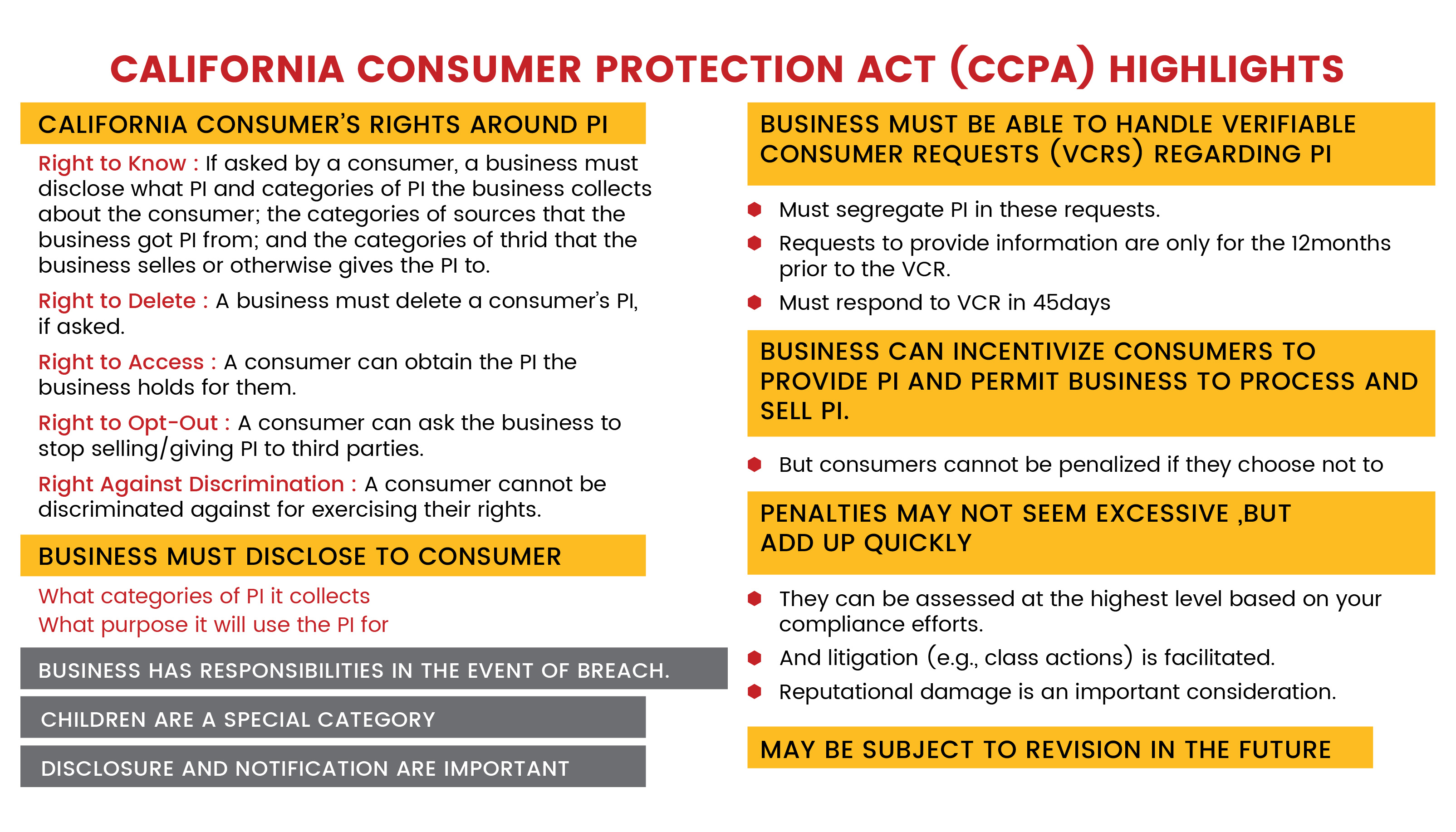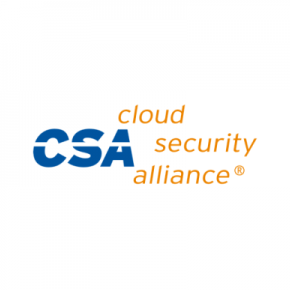What day is best for you?
- Sun
- Mon
- Tue
- Wed
- Thu
- Fri
- Sat
What time works?
30 minutes meeting
Asia/Kolkata Time
Almost there!
IST
CCPA stands for California Consumers Protection Act 2018. It is the most recent personal data protection law passed by the State of California, aimed to protect the right to privacy of its residents and as a response to the increased role of personal data in contemporary business practices and the personal privacy implications surrounding the collection, use, and protection of personal information.
CCybersecurity starts from proper awareness. Briskinfosec BINT LAB cybersecurity researchers continuously put extraordinary effort to help you to realise cybersecurity better and faster. Just download the ThreatSploit Adversary report.

Your window into the evolving threat landscape, offering insights and intelligence to protect against emerging cyber dangers.
The CCPA will apply to for-profit businesses that collect and control California residents' personal information, do business in the state of California, and meet at least one of the following thresholds:
Annual gross revenues larger than $25 million.
Receive or disclose the personal information of 50,000 or more California residents, households, or devices each year.
Make 50 percent or greater annual revenue from selling California resident information.
Companies already following GDPR guidelines will have a bit of a leg up becoming CCPA-compliant with the two privacy measures overlapping in certain areas. But meeting all the requirements for the new CCPA standards will still take diligence even for those already compliant in other areas—and face new consequences for any gaps.
For businesses that must adhere to CCPA law, compliance breaks down into 5 main requirements:
Data inventory and mapping of in-scope personal data and instances of “selling” data
New individual rights to data access and erasure
New individual right to opt-out of data selling
Updating service-level agreements with third-party data processors
Remediation of information security gaps and system vulnerabilities
As with any compliance enforcement, violating the CCPA comes with a price tag. Under Section 17206 of the California Business and Professions Code penalties are $2,500 for an unintentional violation, and $7,500 for intentional violations. The new privacy law will allow individuals to recover between $100 and $750 per incident—or greater if there’s solid evidence that damages exceed $750.
Does Your Business Have to Comply with CCPA?
Any for-profit organization doing business in California that collects consumers’ personal data and meets the following qualifiers must comply with CCPA:
Has annual gross revenues in excess of $25 million
Annually buys, receives for the business’ commercial purposes, sells or shares for commercial purposes, alone or in combination, the personal information of 50,000 or more consumers, households, or devices
Derives 50% or more of its annual revenues from selling consumers’ personal information
While the current compliance requirements are limited to California, this new privacy law could signal the beginning of a nationwide change, similar to GDPR regulations in Europe.

Briskinfosec is a Global Information \ Cyber Security and a CERT-IN Empanelled Organization, will help you to assist in CCPA Compliance requirements protect personal data as well as honor consumers’ rights as per California privacy law.
Briskinfosec Team will identify any potential gaps between the practices and CCPA requirements, and advise corrective actions to be taken in order to be prepared for a CCPA audit and support in future
Briskinfosec Team are knowledgeable and experienced in providing compliance audit, assessment and implementation services to organizations in meeting their regulatory compliance requirements, such as PCI DSS, HIPAA, EI3PA, NERC-CIP, NFA, FINRA and GDPR.

CCPA audit and assessment
Personal Data Mapping
Privacy by Design Program
Privacy Impact Assessment
Incident and Data Breach response planning
Network Penetration Testing
Vulnerability Scanning
Enterprise Privacy Risk Assessment
Personal Data Security Awareness and Training
Celebrating our achievements and collaborations, shaping a future of excellence.

























Get more answers to your questions in our Learning Services FAQ
Expert guidance, tailored solutions- your direct path to insightful, precise answers.
Book an Appointment